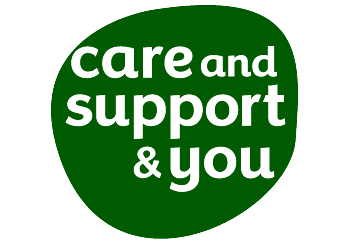What is a deferred payment agreement?
A deferred payment agreement is an arrangement with the council that will enable people to use the value of their homes to help pay care home costs. If you are eligible, the Council will set up a loan which will help pay the cost of the care required on your behalf. You can delay repaying us until you choose to sell your home, or until after your death.
Deferred payment agreements will suit some people’s circumstances better than others’. We will charge interest on the amount owed to us, and there will be a fee for setting this arrangement up.
A deferred payment agreement is only one way to pay for care. To find out more about the options available, you can speak to a financial adviser or seek advice from an independent organisation, or visit our page on paying for care.
Why have they been introduced?
A deferred payment agreement means that people should not have to sell their home in their lifetime to pay care home bills. This national scheme replaces the existing one offered by B&NES Council as this it is slightly different. Existing agreements will not be changed to reflect the new terms and conditions.
Who is eligible for a deferred payment agreement?
Deferred payment agreements will suit some people’s circumstances better than others’ and not everyone will be eligible. You should be eligible for a deferred payment agreement if you are receiving care in a care home (or you are going to move into one soon), you own your own home (unless your partner or certain others live there) or you have savings and investments of less than £23,250 (not including the value of your home or your pension pot). A deferred payment agreement is only one way to pay for care. To find out more about the options available, you can speak to a financial adviser or seek advice from an independent organisation.
When can I apply for a deferred payment agreement?
This Council already has a Deferred Payment Scheme which will continue to be available to eligible residents until the national scheme is introduced.
How do I apply for a deferred payment agreement?
Visit our section on paying for care for details.
When will I have to repay the deferred payment agreement?
You can sell your home and repay the deferred payment agreement at any point. Or you can have a deferred payment agreement for the full length of your stay in a care home and pay it back out of your estate, following your death.
How much can I defer?
The amount you can defer will depend on the value of your home, which determines your ‘equity limit’. As a guide, most people can use around 80-90% of the equity available in their home. The limit on equity is to protect you from not having enough money to pay sale costs of the property (like solicitor’s fees,) and to protect the council against a drop in housing prices and the risk that we may not get all of the money back.
What if my husband/wife/civil partner lives in my house?
If you need care in a care home but your partner lives in your own home then the council will consider your partner’s circumstances as well as your own. Depending on your partner’s circumstances, we may decide to exclude the value of your home when we assess your finances to work out how much you will have to pay towards the costs of your care. This means that you will not face having to sell your home to pay for care and will not need a deferred payment agreement. If your partner has circumstances that mean the council decides that the value of your home is not excluded, you should still be able get a deferred payment agreement, provided your partner is willing to sign the agreement too.
I pay for my own care at home, can I apply for a deferred payment agreement?
A deferred payment agreement is designed for people who are most at risk of selling their home to pay care fees. If you are still living in your own home, you should not need a deferred payment agreement, and there are other ways for you to pay for your care (including council support if you have less than £23,250 in savings and investments). You could speak to a financial adviser or an independent organisation to find out more.
I already live in a care home. Can I apply for a deferred payment agreement?
If you have savings and investments of less than £23,250 and you do not have a partner or dependent living in your home, you should be eligible for a deferred payment agreement. Contact us directly to find out more.
My partner's share of our savings are in my name, will that be taken into account?
This will depend on how the savings are held – contact the council or an independent financial adviser for guidance.
How much will it cost me to set up a deferred payment agreement?
Every council is entitled to charge an administrative fee for setting up a deferred payment agreement. This fee is to cover the costs we incur in setting up your deferred payment agreement, and not to make a profit. The fee is set by the Council in its annual budget each February. It is proposed that this fee in 2015 will be £560.
What is the interest rate on a deferred payment agreement?
We can charge interest on the amount owed to us whilst we are helping to pay your care home bills on your behalf. The interest rate is currently 2.55%, and will be reviewed every six months according to the advice of the Office of Budgetary Responsibility. Interest is charged to cover our costs and not to make a profit.
Will the council make a profit out of deferred payment agreements?
No. We need to make sure that we can invest in the scheme so that people can benefit from it for many years to come. The interest rate and administrative fee will cover our costs, and we won’t make a profit from them.
Who will live in my home if I have a deferred payment agreement?
This is up to you – though there are benefits to keeping your home occupied. It must be maintained and insured for as long as you have the deferred payment agreement, and this can be cheaper and/or easier if someone is living there. You might choose to rent it out and use the income to reduce the amount you asked the council to defer.
Can I avoid selling my home if I get a deferred payment agreement?
If you have a deferred payment agreement, it means you should not have to sell your home in your lifetime unless you decide you want to. As with any loan, the money owed to the council from care home bills paid on your behalf during the deferred payment agreement will need to be repaid eventually. This can either be repaid by selling your house or you can arrange another way to pay if you are able to. For example, someone else could pay the money owed, or your family could use any pay-out from your life assurance after your death. Your deferred payment agreement will end automatically following your death, and your executor will have 90 days to arrange payment of the money owed. If someone else (like a friend or relative) chooses to pay the bill, then your home will not have to be sold.
Can I still get a deferred payment agreement if I have gifted money or my home to my children?
Your home and your money still belong to you if you have a deferred payment agreement, so you can of course make gifts to your children. But a deferred payment agreement for care costs will always need to be repaid – either by the sale of your home after your death, by someone else, or by something like the pay-out from a life assurance policy. If the council believes that your home or your money have been given away deliberately to avoid paying care charges, then we have the power to recover any money that we are owed.
How long does it take to set up a deferred payment agreement?
During the first twelve weeks you are in a care home, your home is ignored for the purposes of calculating what you might pay and a DPA would usually start after that period. If you are eligible, we should be able to set up a deferred payment agreement within twelve weeks of you moving to a care home but some will be arranged more quickly than this.
Who will value my home?
The council will undertake a valuation based on Land Registry prices of properties sold locally. An example of this can be found on public websites such as www.Zoopla.co.uk. If you are not happy with this valuation you can arrange your own independent valuation with a member of the Royal Institute of Chartered Surveyors, which we are likely to accept as a mutually agreeable solution.
Can the terms of my deferred payment agreement be changed at any time?
The maximum amount of costs that the council will pay on your behalf, along with the interest rate and any administrative fees, will be set out at the start of the deferred payment agreement. These will be reviewed regularly and can be changed. Any other conditions – for example how the property should be maintained – will also be written down in your agreement. Make sure that you understand the full terms and conditions and get independent advice from a solicitor, financial advisor or an independent organisation before signing a deferred payment agreement.
Can I get a deferred payment agreement if my house is in a flood risk area?
In order to be eligible for a deferred payment agreement your property will need to be insured. Some flood risk areas may not be covered by insurance companies. The Council is aware of the local risks and may ask an engineer to advise on the potential risk before we enter into an agreement. Please contact us if you have specific concerns about this.
What will happen to my home after my death?
The executor of your estate should arrange repayment of the money owed to the council, either by putting your home up for sale, or by arranging for another person, such as your heir, to pay. This will usually need to be done within 90 days. If the money owed is repaid without your home being sold, then your property will be dealt with according to any instructions you have left.
Who decides on the price my home will be sold at after my death?
Your executor will arrange the sale and repayment of the money owed to the council.
How long will my heirs have to pay back the deferred payment agreement without incurring extra charges?
Your heirs will usually have 90 days to repay the deferred payment agreement. Interest charges will continue to be added during this period.
What will happen if my heirs don’t pay back the deferred payment agreement within the 90 days? Will they be charged extra?
If, after 90 days they haven’t taken reasonable steps to repay the deferred payment agreement, then the council has the power to recover the amount owed through the courts.
Are all heirs equally liable for the repayment of a deferred payment agreement?
The money lent by the Council will be repaid before the executors can divide up the estate for your heirs according to any instructions that you leave. If the value of your estate is not sufficient to meet the cost of repayment to the Council the heirs will not be liable for the outstanding debt. In this situation the Council is likely to investigate all transactions from your accounts over the previous seven years to ensure that money has not been removed to avoid care costs.
How is the money reclaimed?
You may need to name someone (usually the executor of your will) in your deferred payment agreement, who will help us to reclaim our costs in the event of your death.
Can a family member apply for a deferred payment agreement if a person needing care has dementia or does not have the capacity to understand?
Carers and families can help people to make decisions about their care and how to pay for it. If we are concerned that the person applying for the deferred payment agreement does not have the capacity to understand, or won’t have capacity to understand in the near future, then another person may need to represent them. Only a person that is properly authorised, like someone with legal power of attorney, can represent someone in applying for a deferred payment agreement.
Where can I find out more about deferred payment agreements?
To find out how the changes are being introduced in this area, get in touch with us at My Care My Support My_CareMySupport@BATHNES.GOV.UK
A deferred payment agreement is only one way to pay for care. To find out more about the options available, you can speak to a financial adviser or seek advice from an independent organisation, find out more in our money and legal section.





